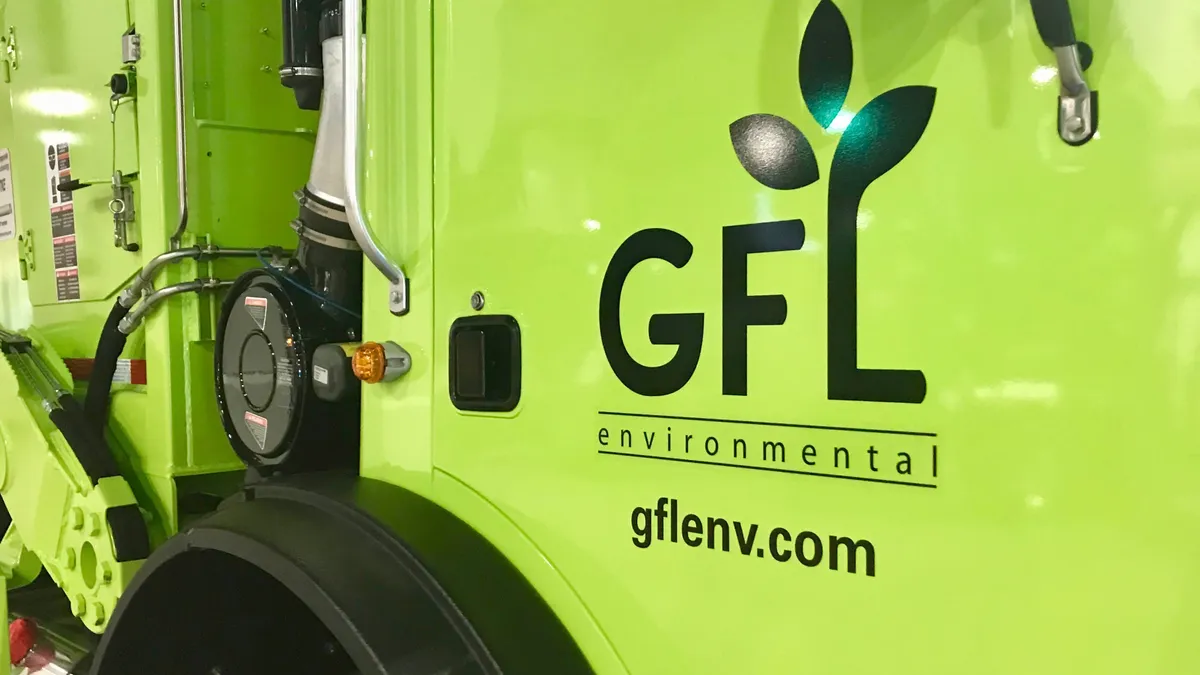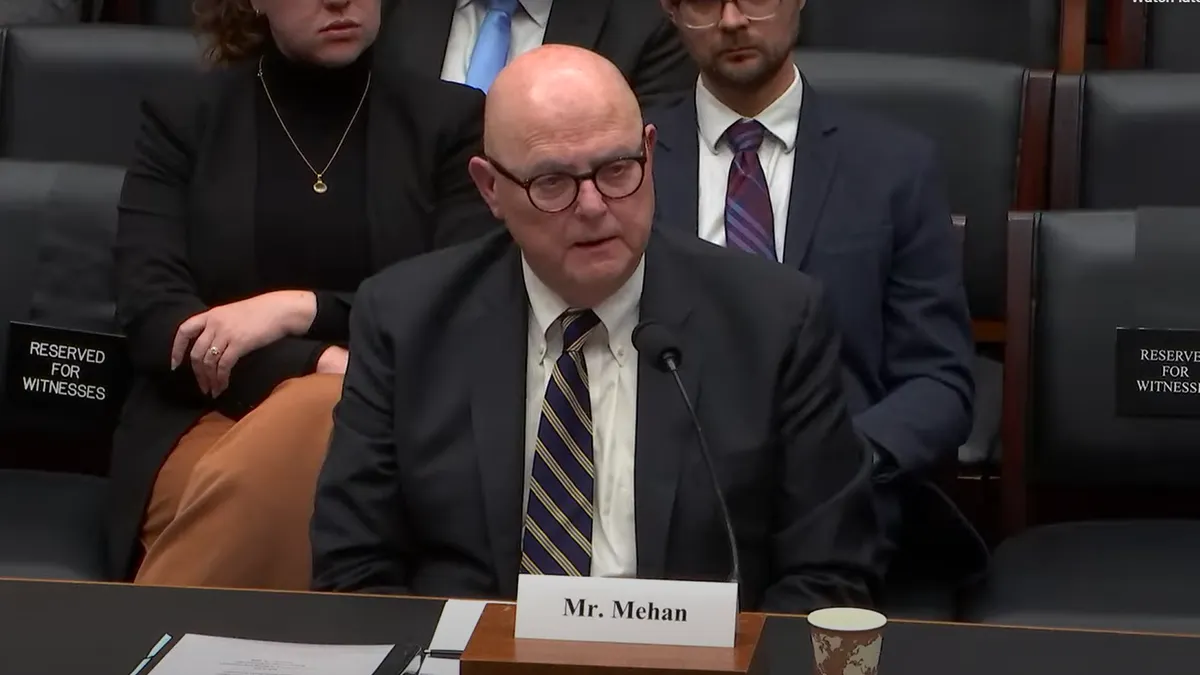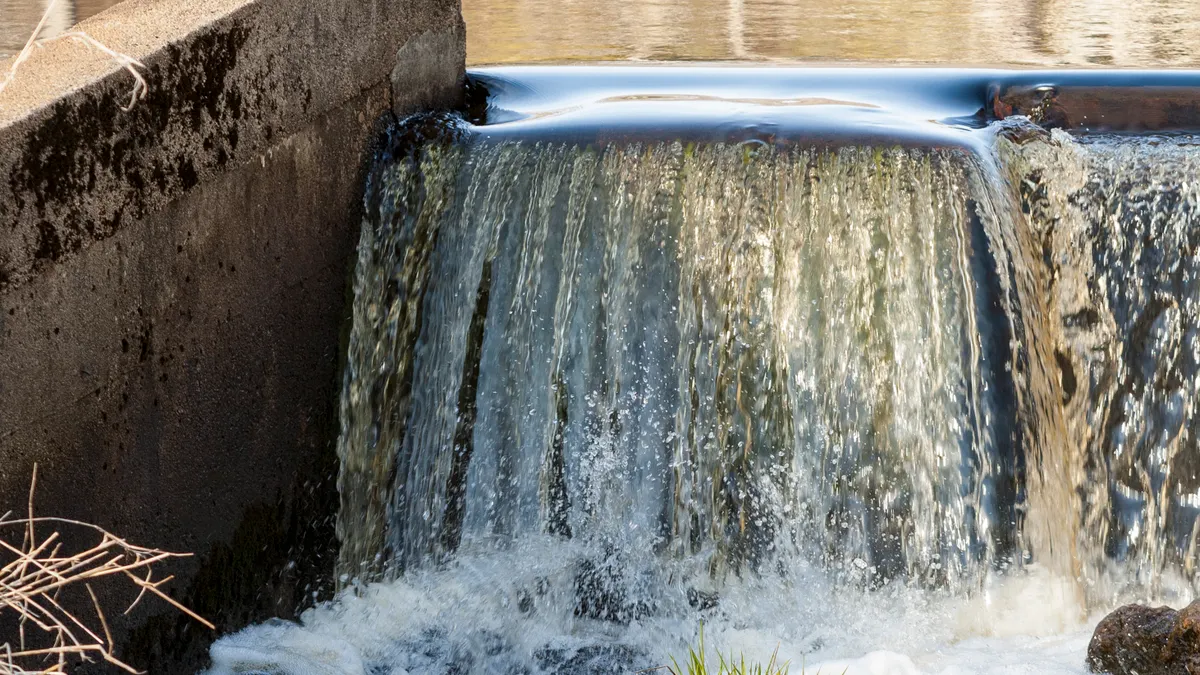GFL Environmental's rapid rise appears to have only accelerated since last year's major acquisition of Waste Industries, and claims expansion is far from over. The company's status as one of the biggest North American industry players was further affirmed by an eager reception at last week's WasteExpo investor summit.
Compared to 2018, when GFL had just announced a $5 billion recapitalization deal to remain private yet still only present in one U.S. state, the scene at this year's conference was striking. Despite the early time slot, CEO Patrick Dovigi's session attracted one of the largest crowds of the day. The young executive's casual confidence — he said being a professional hockey goalie was likely harder than this more lucrative gig — hinted the newfound attention is not unwelcome.
Reporting annual revenues of around $3 billion ($2.3 billion of that from solid waste) the Canadian company now operates in all but one province and 20 U.S. states. While solid waste has traditionally accounted for 70-80% of that business, GFL is also well-known for its liquid waste assets and leveraging those to accelerate expansion. Since its 2007 launch, GFL has acquired an estimated 110 companies in total — four or five of which were described as sizable.
Dovigi told moderator Michael E. Hoffman that GFL, Waste Management and Waste Connections now control about 30-35% of the Canadian market, so there is still plenty of room to grow. As for the U.S., GFL is now the largest private operator in the market and likely to become the fourth-largest player if and when the Waste Management-Advanced Disposal Services merger closes next year.
Asked whether the acquisition of Waste Industries might have hindered Advanced's own growth plans, and perhaps GFL should have been the one to buy Advanced itself, Dovigi backed off any talk of trying to interfere.
“Waste Management can buy whatever they want, when they want, so I think it made sense for them," he told Hoffman, while admitting the assets were appealing. “That would be a big check and I don’t think I want to go into the corner with the 800 pound gorilla. So we’ll continue marching on the same plan that we had."
Dovigi did say GFL would be ready to bid on any required divestments from the mega-merger, but is otherwise focused on U.S. growth east of the Mississippi.
After Dovigi and CFO Luke Pelosi were done shaking hands in the hallway, Waste Dive caught up with the pair to learn more about the company's U.S. experiences to date.
Pelosi said the company's 18-month plan to integrate Waste Industries assets was on track — with back-office downsizing, procurement standardization and other plans well underway — and about half of the estimated C$35 million in synergies had been realized. As for legacy legal issues at landfills in Tennessee and Georgia, Pelosi brushed them off as business as usual.
"I think a lot of things have come off better than expected," he said. "Bringing two businesses together, that cultural difference can be often what leads to an unsuccessful integration. But there's been a great buy-in from the [regional vice president] level of guys who are excited. New brand, new name, being part of a bigger, broader family. So it's gone very well."
Pelosi confirmed "four or five" small tuck-in deals had been completed in the U.S. since last fall, but "nothing of size or scale." Known acquisitions include Bestway Disposal in Colorado, Coastal Ladies Carting (Pink Trash), Ray's Rural Garbage Collection and Axon Disposal Service in North Carolina.
Another recent development has been deepening recycling challenges in Michigan, where GFL currently services 65 municipalities and has the largest exposure in terms of U.S. volume. Because GFL doesn't own a MRF in Michigan, unlike other states, it's subject to pricing from Republic Services. Dovigi said that has swung from rebates of $30 per ton to now paying upward of $75-100 per ton. The company's local representatives have been sounding the alarm, telling customers "the market has collapsed" and prices must rise accordingly.
GFL has built its Canadian reputation in part on growing recycling programs, including organics collection, and Dovigi claimed the new market conditions wouldn't necessarily change that strategy when looking at future acquisition targets.
"I think what's needed to happen in the recycling market to change the business permanently has happened," he told Waste Dive. "I think it probably makes sense to jump into that space. Again, it's obviously regional-specific, and depending on what competition and what facilities exist in other places, but I think there are specific markets where we are looking at identifying those opportunities to actually own our own cradle-to-grave solutions."
Beyond recycling, the GFL team was also sure to note it still sees about 60% of the acquisition pipeline coming from Canada and remains focused on a North American strategy. As that progresses, GFL's role as the upstart may begin to evolve into that of an established agglomerate — especially if the company ever goes public. Asked about the level of corporate consolidation — during the investor summit, Dovigi said he thought the Waste-Management-Advanced was "good for the industry" — the GFL executives downplayed any concerns.
"A lot of the larger companies have transacted, but there's still a whole host of other opportunities out there that exist. And I think there's a place for everyone in the specific market," said Dovigi. "I think people have been nervous about the amount of landfill concentration that the big four own, because that could dictate prices in vertically integrated markets, but there's lots of opportunities in disposal neutral markets as well."
Pelosi added he thought the U.S. Department of Justice has been doing "a really good job" of ensuring no company gets control of too much landfill capacity in a given region, and that he believes customers still have adequate choices.
Asked where GFL sees its place in industry history as the years continue, Pelosi made clear their full ambitions have yet to be realized and hinted at more to come.
"We kind of feel like we're just getting started. In the beginning we were sort of fumbling around figuring what we have, but if you look at what we have now, we have an incredible platform with incredible people, well invested, and we see a great deal of opportunity," Pelosi said. "[F]ast forward 5-10 years, and you look at the business that Patrick's going to have built over a 15-20 year time period, I think it's going to be one of the largest players in the continent that came from very little."
Correction: This article has been updated to reflect GFL's full revenue beyond solid waste, the correct percentage of Canadian market share and current recycling costs in Michigan.


















